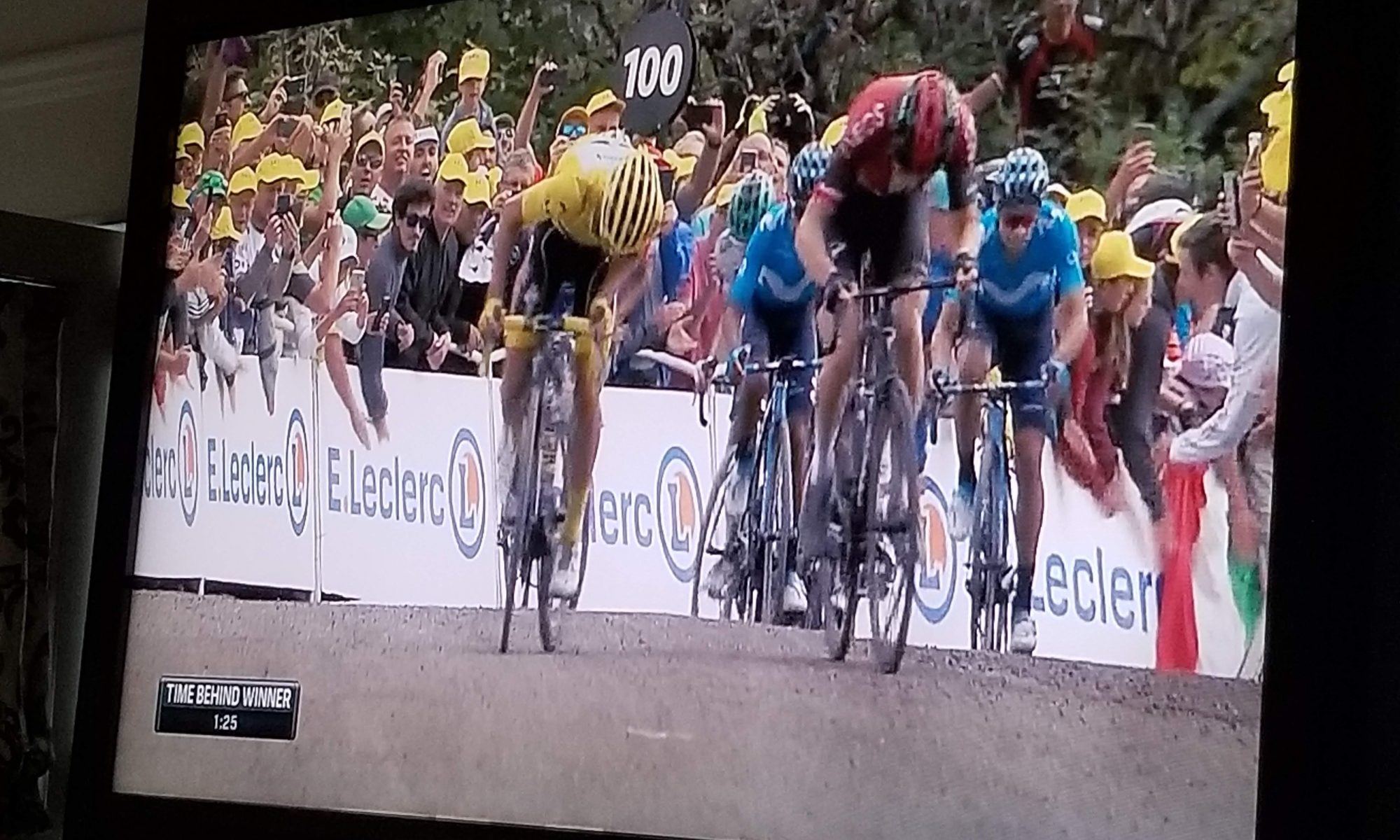Mr. Man and I started watching the Tour de France back in the Lance Armstrong days. We would turn the TV on as soon as we woke up and spend the morning rooting for the US Postal Service team. Those days are long gone, but we still look forward to watching one of our favorite sporting events every July.
The television coverage of the Tour de France is really exceptional. It is 50% compelling race coverage and 50% gorgeous travelogue. Either of those elements alone make for a great viewing experience.
After a while, I began to see the Tour de France as a metaphor for the human condition. Today, I’m going to explain just a few of the aspects that I find compelling and encourage you to think about how they apply to more than just cycle racing.
The Power of the Peloton
The term “peloton” literally translates to “little ball” and refers to the main field of cyclists in a race. There are a lot of physics at play in cycling and the peloton creates advantages for the riders in the group through certain aerodynamic effects. The bottom line is that a group of cyclists, working together in a tight-knit group is eminently more powerful than the same number of riders would be if they were all working independently.
The Danger of the Peloton
While the peloton is eminently more powerful than the sum of its parts, it can also be a very dangerous place to be. If one rider loses his line going around a curve, he can wipe out a whole mess of others. Also, when someone in the middle begins to lag, the riders behind him are affected because there is no room for them to maneuver. There is a trade-off between the advantage of the group and the peril of sacrificing one’s independence.
The Tragedy of the Break-Away
One of the most exciting parts of any stage is a break-away. An individual or small group of riders can often jump out to a substantial lead over the peloton. I am always rooting for whoever makes the break to be able to hold on until the end of the stage. Isn’t it natural to want to see someone’s extraordinary effort rewarded?
Here is where the tragedy of the break-away comes in. No matter how strong or exceptional an individual is, he can rarely hold out long enough to win the stage. And while the entire peloton might not catch up to the break-away, at some point they will send a chase group who will. It’s like a fox hunt.
The Advantage of the Privileged
One irony of the Tour de France is that although it is theoretically an individual competition, an individual can only succeed through the efforts of his team. In some ways, a cycle racing team is like any other team, with each member assigned a role. There are sprinters and climbers and domestiques (they carry and distribute supplies to the rest of the team during the course of a stage). However, the entire team effort is put toward the success of an anointed individual. It’s as if at the end of the Superbowl, Tom Brady was declared the winner rather than the New England Patriots.
I’m not saying that this is good or bad, I don’t have any opinion about it in those terms. What I find fascinating about it is how the game is, for lack of a better term, rigged to ensure that only certain individuals have a shot at winning. As Americans, we are really big on the concept of a level playing field, where anyone who has the facility and determination at least gets to start from the same line. But, in reality, there are a thousand little advantages sprinkled unevenly throughout the field.
Who knew that sports could be so deep?
I look forward to watching the Tour de France every year. Not only because it is such a compelling sporting event held in such a spectacular venue, but because of the way that it illuminates the human condition.
The Tour de France runs through July 28 this year. If you haven’t watched it before, I encourage you to check it out and let me know what you think!









